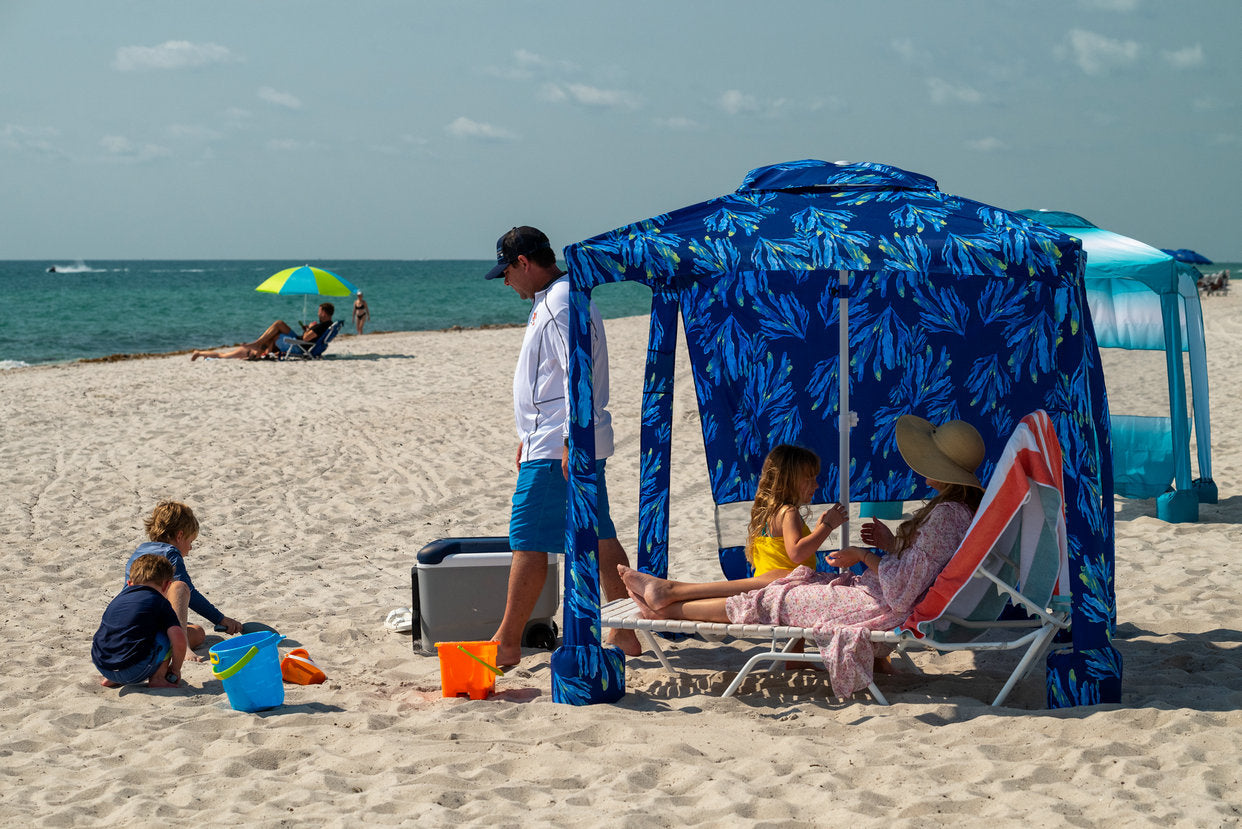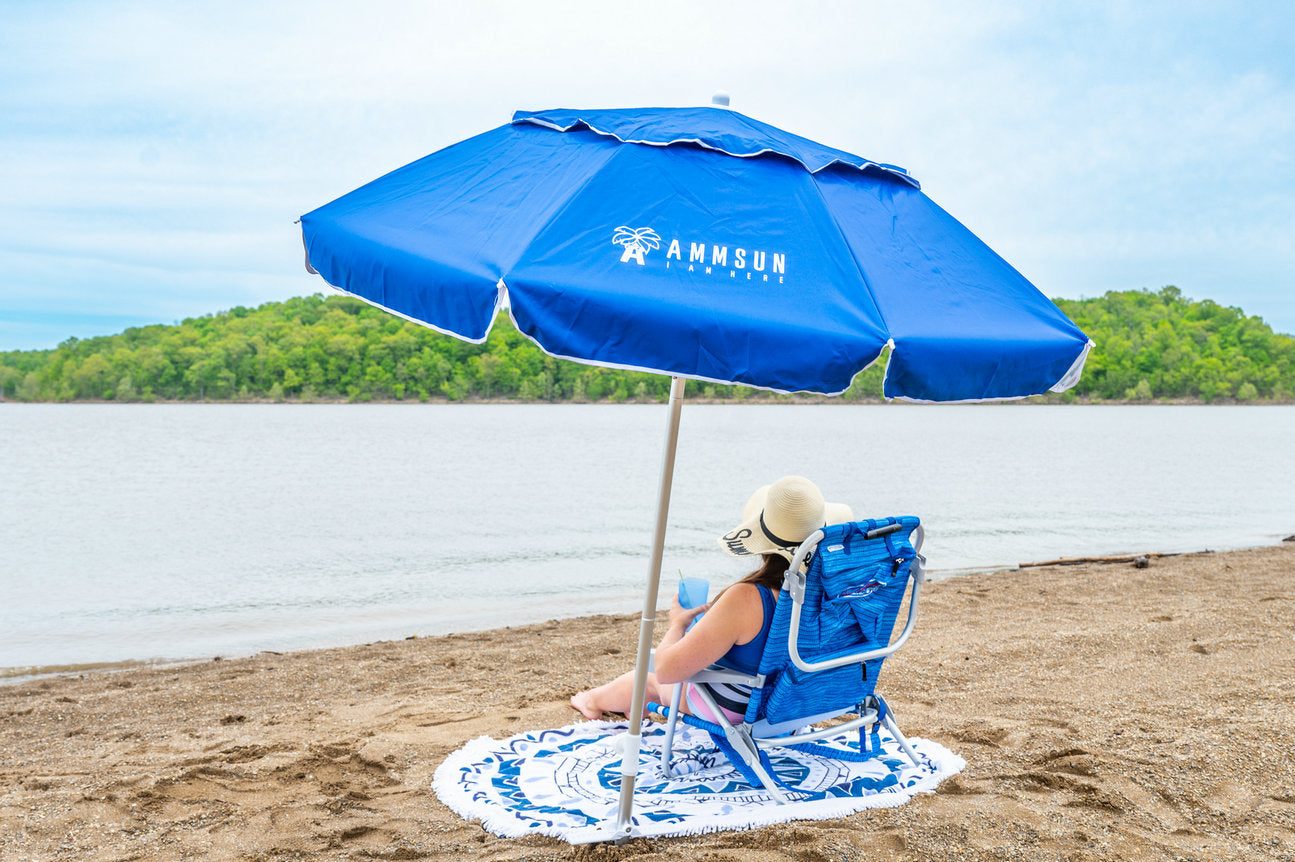How to Stay Safe and Have Fun: Your Essential Guide to Beach Safety

Beach trips are synonymous with relaxation, fun, and soaking up the sun. However, amidst the joyous atmosphere, it's essential to prioritize safety. From strong currents to sunburns, the beach presents its own set of potential hazards. Here's a comprehensive guide to essential beach safety tips to ensure your seaside adventures remain enjoyable and risk-free.
Water Safety
- Swim Near Lifeguard Stations
Whenever possible, choose a beach with designated lifeguard stations. Lifeguards are trained to monitor water conditions and respond quickly to emergencies. Swimming within their designated areas increases your safety significantly.
- Check Water Conditions
Before diving in, take a moment to assess the water conditions. Look out for warning signs such as strong currents, rip tides, or hazardous marine life. Pay attention to flags or advisories posted by lifeguards indicating water safety levels.
- Know Your Limits
Understand your swimming abilities and only venture into water depths that you're comfortable with. If you're not a strong swimmer, stick to shallow waters where you can touch the bottom and easily return to shore if needed.
- Respect Rip Currents
A rip current is a narrow gap of water that seems calmer than the surrounding water, flanked by areas of breaking waves and whitewater. Rip currents are powerful currents that can pull swimmers away from the shore. If caught in a rip current, remain calm and avoid panicking. Swim parallel to the shore until you escape the current's pull, then swim back to shore at an angle.
- Buddy System
Always swim with a buddy, especially in open water. Having someone with you provides an extra layer of safety in case of emergencies. Keep an eye on each other and communicate any concerns or difficulties.
Sun Protection
- Apply Sunscreen
Sunscreen is your first line of defense against harmful UV rays. Choose a broad-spectrum sunscreen with an SPF (Sun Protection Factor) of at least 30. Apply it generously to all exposed skin, including your face, neck, ears, and feet. Reapply every two hours, or more frequently if you've been swimming or sweating.
- Stay Hydrated
While swimming, it's easy to forget about staying hydrated. Dehydration can lead to fatigue and cramps, increasing the risk of accidents in the water. Take regular breaks, drink water, and seek shade to prevent overheating. Avoid excessive alcohol consumption, as it can contribute to dehydration and impairs judgment, coordination, and reaction time, increasing the risk of accidents and drowning.
- Seek Shade
While it's tempting to bask in the sun's warmth, it's essential to take breaks in the shade. Seek refuge under an umbrella, canopy, or beach tent during the peak hours of sunlight, typically between 10 a.m. and 4 p.m. This not only provides relief from the heat but also reduces your overall sun exposure.
- Wear Protective Gear
Covering up with clothing can provide additional protection from the sun's harmful rays. Opt for lightweight, breathable fabrics with a tight weave to shield your skin effectively. Wide-brimmed hats offer shade for your face, neck, and ears, while UV-protective sunglasses safeguard your eyes from damaging glare.
Child Safety
- Supervise Closely
Never underestimate the importance of supervision. Keep a close eye on your children at all times, especially when they are near the water. Even shallow water can pose a risk to young children, so stay within arm's reach.
- Use Floatation Devices
For young children or inexperienced swimmers, flotation devices such as life jackets or floaties are essential. Make sure the devices are properly fitted and approved by safety standards. However, keep in mind that these devices are not a substitute for supervision.
- Educate on Water Safety
Teach your children about water safety. Make sure they understand the dangers of rough waves, strong currents, and deep water. Encourage them to always ask for permission before going into the water and to stay close to shore.
Environmental Awareness
- Beware of Marine Life
Beachgoers should always be mindful of the diverse marine life inhabiting coastal waters. Avoid touching unfamiliar creatures and alert a lifeguard if you spot any dangerous marine animals in the vicinity. If stung or bitten, seek immediate medical attention and follow recommended first aid procedures.
- Respect Wildlife
Keep a safe distance from nesting sites, bird colonies, and seal haul-out areas. Refrain from feeding wildlife, as it can lead to dependency and alter natural foraging behaviors. Dispose of trash properly to prevent wildlife from ingesting harmful debris. Adhere to any posted guidelines or regulations regarding wildlife protection.
- Stay Off Rock Jetties
Uneven surfaces and slippery rocks, increasing the likelihood of falls and injuries. Powerful waves and currents crashing against the jetties, potentially sweeping individuals into the water. Sharp edges and protruding rocks that can cause cuts, bruises, or other injuries.
Emergency Preparedness
- Know the Beach Rules and Regulations
Before hitting the sand, familiarize yourself with the beach's rules and regulations. These might include swimming restrictions, designated swimming areas, and any specific guidelines for watercraft or recreational activities. Understanding the rules can help you avoid potential hazards and stay safe.
- Check the Weather Forecast
Always check the weather forecast before heading to the beach. Sudden changes in weather, such as thunderstorms or high winds, can pose significant risks, especially if you're in or near the water. Avoid going to the beach during severe weather conditions and be prepared to seek shelter if conditions deteriorate unexpectedly.
- Recognizing Heat-Related Illnesses
Heat-related illnesses like heat exhaustion and heatstroke are serious conditions that can occur when your body overheats. Heat exhaustion is characterized by symptoms such as heavy sweating, weakness, dizziness, nausea, and headache. If left untreated, it can progress to heatstroke, which is a life-threatening emergency marked by a high body temperature, confusion, rapid pulse, and loss of consciousness.
- First Aid Essentials
Prepare a basic first aid kit containing essential items such as adhesive bandages, gauze pads, antiseptic wipes, tweezers, scissors, and pain relievers. These supplies can come in handy for treating minor cuts, scrapes, insect bites, and other common beach-related injuries.
- Learn CPR and First Aid
In case of emergencies, knowing CPR and basic first aid can be life-saving. Consider taking a CPR certification course before your beach trip to be prepared to respond effectively in crisis situations. Make sure you know the local emergency contact information, including the number for the nearest lifeguard station, coastguard, and emergency services. In case of an emergency, every second counts, so being prepared with this information can make a significant difference.
Creating Safe Haven by the Shore: The Wind-Resistant AMMSUN Cabana
Enhance your beach experience with AMMSUN's premium beach cabanas, designed to elevate your safety and enjoyment under the sun. Crafted with durability in mind, our cabanas offer superior wind resistance, providing a reliable shelter against coastal breezes.

- Plenty of Shade, Endless Comfort
Measuring 6.2 feet by 6.2 feet, the AMMSUN Cabana provides ample shade for individuals, couples, or families seeking refuge from the sun. Whether you're lounging with a book, enjoying a picnic, or simply relaxing with loved ones, this spacious shelter offers a comfortable retreat where you can unwind and savor the beauty of the beach without worrying about sun exposure or discomfort.

- Shielded from Harmful Rays
Sun safety is important when spending extended periods outdoors, especially at the beach where UV exposure is heightened. The AMMSUN Cabana offers UPF 50+ UV protection, shielding beachgoers from harmful ultraviolet rays. Featuring a detachable wall, this cabana provides unparalleled versatility, allowing you to block the sun from any angle. With its waterproof fabric, this cabana not only keeps you cool but also protects your skin from sunburns and other UV-related risks.
- Wind-Resistant Construction
One of the most notable features of the AMMSUN Cabana is its robust construction, specifically engineered to withstand strong winds. The carefully crafted vents allow air to flow freely, preventing gusts from gaining a foothold and destabilizing your shelter. Equipped with four steel ribs and reinforced corners, this cabana remains stable even in breezy conditions, providing peace of mind to beachgoers worried about their shelter collapsing.
- Effortless Setup and Convenience
Convenience is key, especially when it comes to setting up beach equipment. The AMMSUN Cabana excels in this aspect, with a user-friendly design that allows for easy setup by just one person in under three minutes. Additionally, its lightweight construction and included fabric carry bag make transportation a breeze.
By incorporating AMMSUN's beach cabanas into your beach outings, you're not only prioritizing safety but also enhancing your overall comfort and enjoyment. Don't let unexpected gusts or harsh sunrays ruin your day—trust in AMMSUN for reliable beach shelter solutions.




Comments